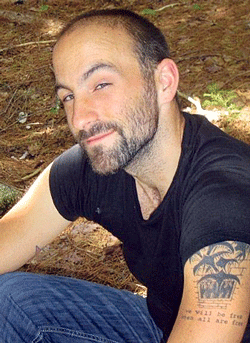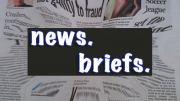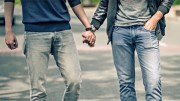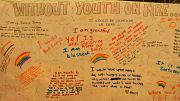By: Jason Lydon*/TRT Columnist–
When writing for a LGBTQ newspaper the constant question in any situation is, “What’s the queer angle to this story?” As I reflect on the tragic bombing of the Boston Marathon and the subsequent search for the suspects involved, the same question comes to my mind. There is the story of Javier Pagán, the LGBT Police Liaison in Boston who is in the widely circulated photo of Boston police responding after the blasts. Pagan’s perspective on the day is getting covered by local, national and international LGBTQ media sources. The search for LGBTQ individuals involved is nearly instant. We have a sense that we are amongst the heroes and the victims and we have a collective knowing that our stories have a history of being left out. I find myself having this reaction and then I pause for a moment and think about those who wish and pray that their people, that their story, could be left out.
Immediately following the bombing, the label of Muslim terrorists began to be applied and young Brown men started to be targeted, even one Saudi man who was injured by the blast and running from the site like everyone else. One political commentator, Dave Zirin, added his perspective on Twitter, “Unbelievable – yet all too believable – that iin addition to ‘Driving While Black’ and ‘Flying While Muslim,’ we now have ‘Running from a Bomb While Brown.” As we search for the queer stories, we need to do so with attention to who we are identifying with and who we are stepping on top of.
Uncovering queer stories is about more than finding people who identify as gay, lesbian, bisexual and/or transgender. Queer stories are found where there are blurry borders. Sarah Kendzior, an anthropologist, wrote an article reflecting on the attention the Tsarnaev brothers are bringing to Chechnya. In her piece, “The wrong kind of Caucasian,” she writes, “Despite the Tsarnaevs’ American upbringing, the media has presented their lives through a Chechen lens. Political strife in the North Caucasus, ignored by the press for years, has become the default rationale for a domestic crime.” [pullquote]White people, for instance, will not be racially profiled when people who cause harm are of our race. When white people attack, harm and kill many people, they are not called terrorists and are often categorized as mentally ill (i.e. Newtown, Aurora, Oak Creek).[/pullquote]
Before the Tsarnaev’s were announced as the suspects there was discussion back and forth about whether or not the people involved would be white supremacists following in the tradition of attacks on Patriots Day or if it would be Muslims. No other options were really getting any attention. In efforts to isolate the meaning of whiteness, it has become the practice of media and many individuals to strip the Tsarnaev brothers of their whiteness. Many articles were going around Facebook and other social media sites about the impact of white privilege in moments of violence. White people, for instance, will not be racially profiled when people who cause harm are of our race. When white people attack, harm and kill many people, they are not called terrorists and are often categorized as mentally ill (i.e. Newtown, Aurora, Oak Creek). The reality in this situation is that the suspects are white and Muslim. While I will continue to benefit from the white privilege in this situation, not having to defend who I am, as Dzhokar Tsarnaev stands trial we will see how the social construction of race maneuvers in a way to maintain white purity and innocence.
One of the things I love about LGBTQ specific news sources is that they have the potential to ask questions that too often go unasked. As we think about the aftermath of the week long search for suspects and as we continue to heal from collective panic, I hope we can sit with many questions. Among them, what does justice and healing look like after an event like this? Where did all the homeless queer youth go while the city was on lockdown? How do we reconcile the solidarity pictures coming from Iraq, Afghanistan, Pakistan and elsewhere, when our government continues to drop bombs on people there? What precedent was set by the door-to-door search in Watertown with no warrants? As the prison rape jokes about Dzhokar Tsarnaev continue, how do we challenge desires for revenge? Queer stories will continue to unfold and my hope is that as they do, we find out where we are able to align ourselves with transformative justice and healing without perpetuating a nationalism that legitimizes the suffering of others. Take time to breathe, to tell stories, and to listen for opportunities to create a more just community. [pullquote]As the prison rape jokes about Dzhokar Tsarnaev continue, how do we challenge desires for revenge?[/pullquote]
*Rev. Jason Lydon is a Unitarian Universalist minister in Boston. He is a long time anti-prison organizer and founder of Black & Pink, an LGBTQ-focused effort working toward the abolition of the prison industrial complex. Jason is also an avid lover of famous people and blockbuster action flicks. You can reach Jason at jason@blackandpink.org.








